This Campaign has now finished
| When it ran | January to March 2021 |
| What we did | Over 1,500 people took part in an e-action calling for the Scottish Government to publish a Climate Change Plan update that includes the transformational changes needed to reduce emissions and put Scotland rapidly on course to a healthier, fairer, low carbon future. We delivered the messages we received to the Cabinet Secretary for Environment, Climate Change and Land Reform. |
| What changed | We demonstrated that many people across Scotland wanted the Climate Change Plan update to include more detail and stronger policy positions. However, the Scottish Government decided to go ahead with the plan in it’s original format and not take into account the views of SCCS and other stakeholders who had taken part in the consultation process. We will continue to push for the policies we want to see through other opportunities. |
About the ‘Time for Action: Climate Change Plan update’ campaign
With only nine years left to meet the 2030 target to reduce emissions by 75% it’s crucial that the Scottish Government’s Climate Change Plan update sets out and delivers the transformational changes needed to achieve these reductions and puts Scotland rapidly on course to a healthier, fairer, low carbon future. It’s Time for Action.
Ambitious action now will benefit communities across Scotland. By 2030, we could be living in a better-connected country with expanded public and active transport. We could have greener and healthier towns and cities, warmer and more energy efficient homes and clean energy that secures good, green jobs and a revitalised natural environment.
In 2021, Glasgow will host the COP26 UN climate summit, crucial to the prospects for an effective global response to the climate emergency. A Climate Change Plan update that delivers the transformative changes we need to cut emissions across all areas of life in Scotland and also champions climate justice at home and abroad will reinforce Scotland’s leadership on this issue at a critical juncture in world history.
People from across Scotland added their voices to our campaign to call for a plan that contains the ambition and action needed.
Read some of their personal messages and watch the video below:
Click on the boxes below to find out what we called for the Climate Change Plan update to include:
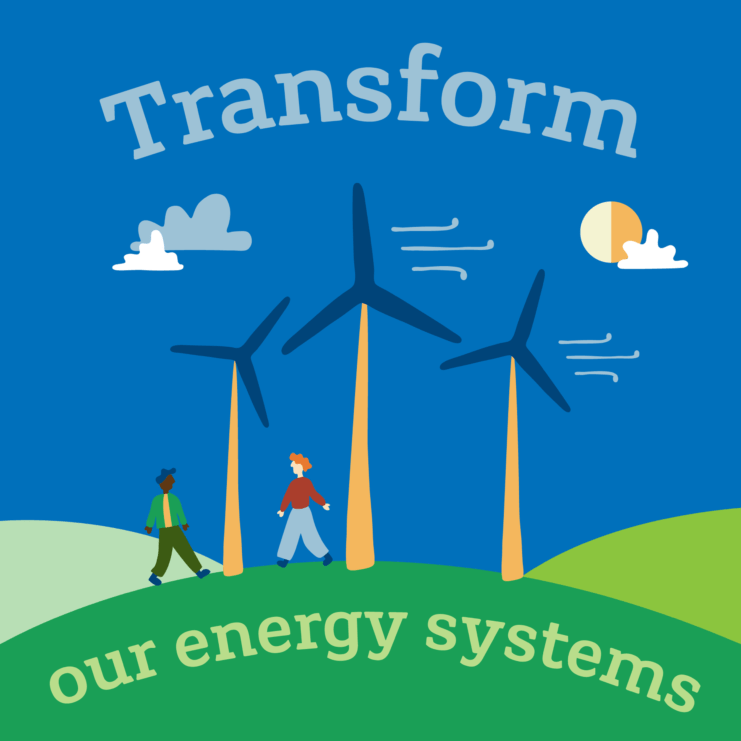
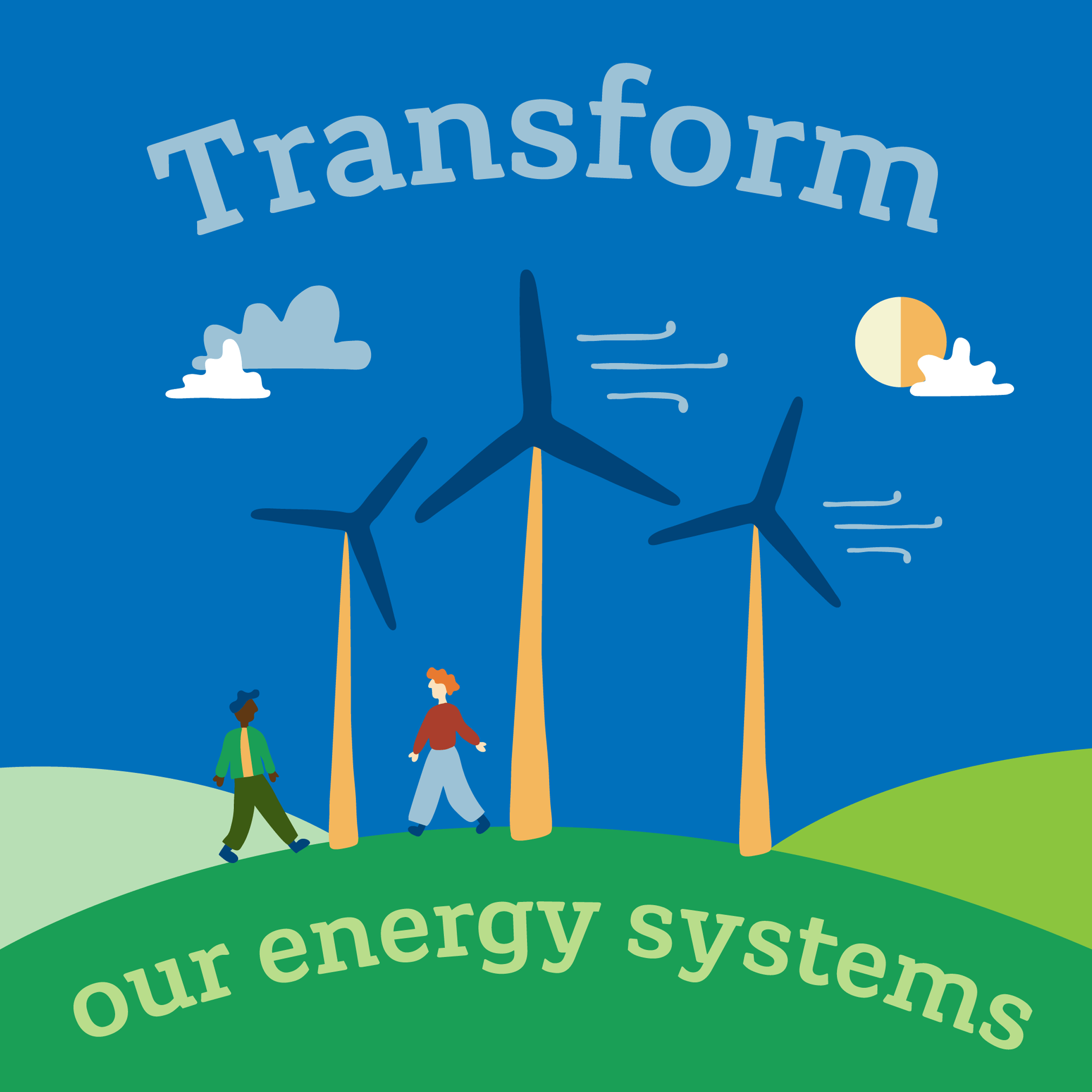
Transform our energy systems
Our vision is for 100% renewable electricity generation in Scotland by 2032 with locally and community owned energy that has a real role in generating renewable electricity.
What the Climate Change Plan update includes:
- Overall, the policies and proposals for the further development of renewable energy and the decarbonisation of Scotland’s electricity production/distribution are generally welcome
- Our proposals for more community owned energy are not included
- There is too big a reliance on Negative Emission Technologies which are unproven and undermines the Plan’s credibility
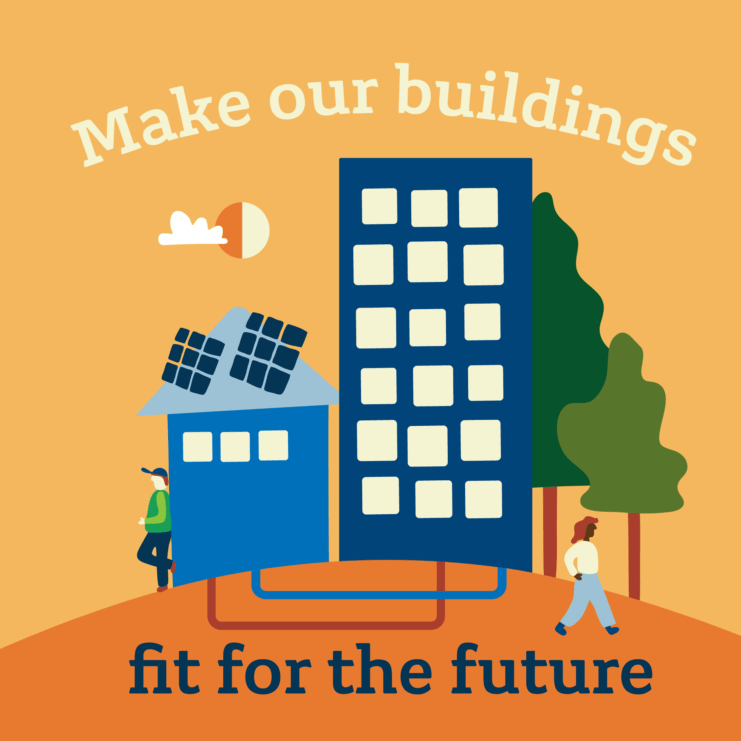
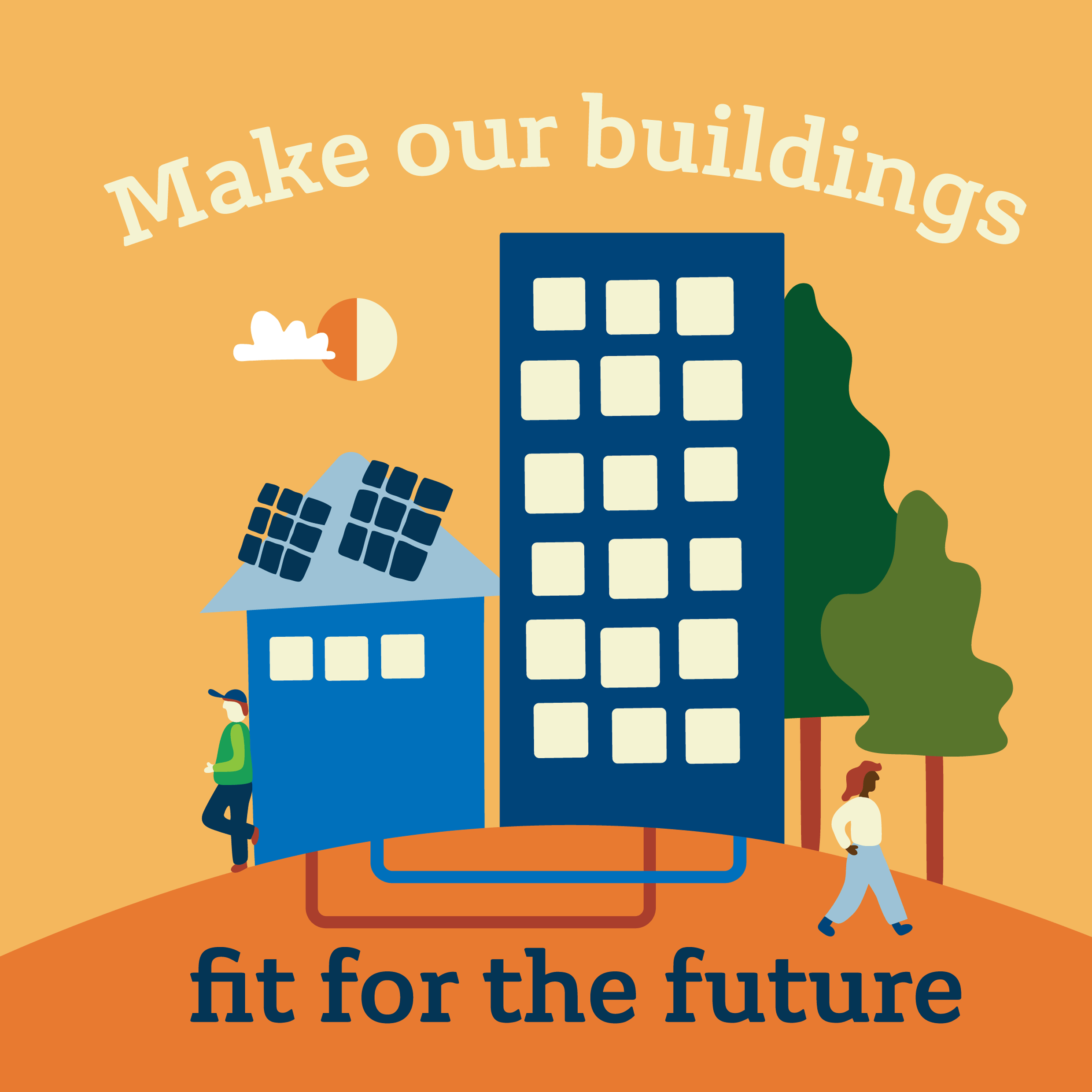
Make our buildings fit for the future
Our vision is for better insulated homes, workplaces and public buildings to reduce emissions and improve our health.
What the Climate Change Plan update includes:
- The long-term objectives of the “Heat in Buildings Strategy” are very welcome and the measures to deliver are fairly comprehensive, especially the proposals regarding building standards and regulations.
- Proposal to introduce “regulations for all buildings to achieve a good level of energy efficiency” is welcome
- No commitment to phase out high carbon heating like oil and LPG in off-gas areas by 2025 or to set a date for the phase-out of replacement gas boilers in existing homes, but much welcome discussion of the need to do so, of alternatives and proposals to provide financial incentives to the alternatives.
- Proposed investment of £1.6 billion in heat and energy efficiency over the next Parliament is welcome
- Overall, the policies and proposals for the further development of renewable energy and the decarbonisation of Scotland’s electricity production/distribution are generally welcome
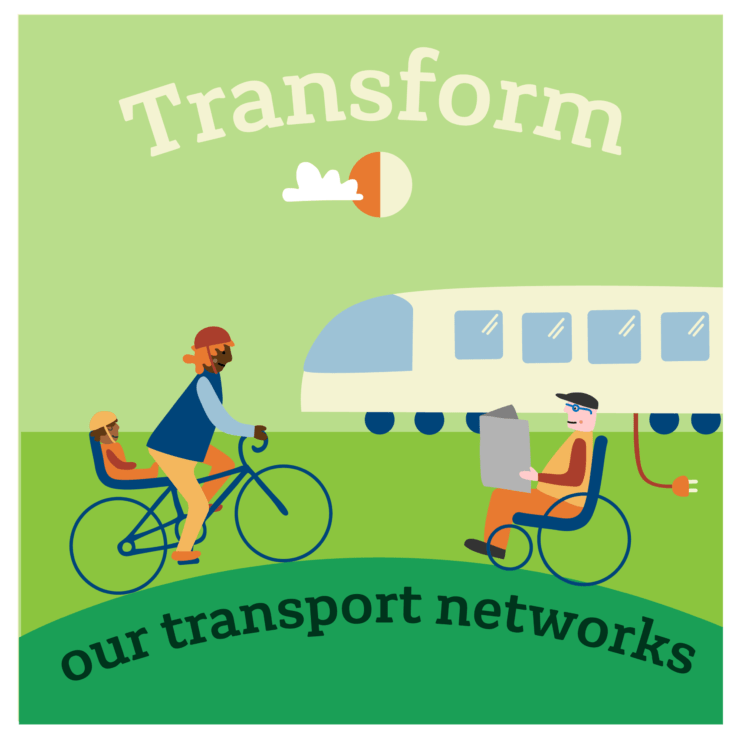
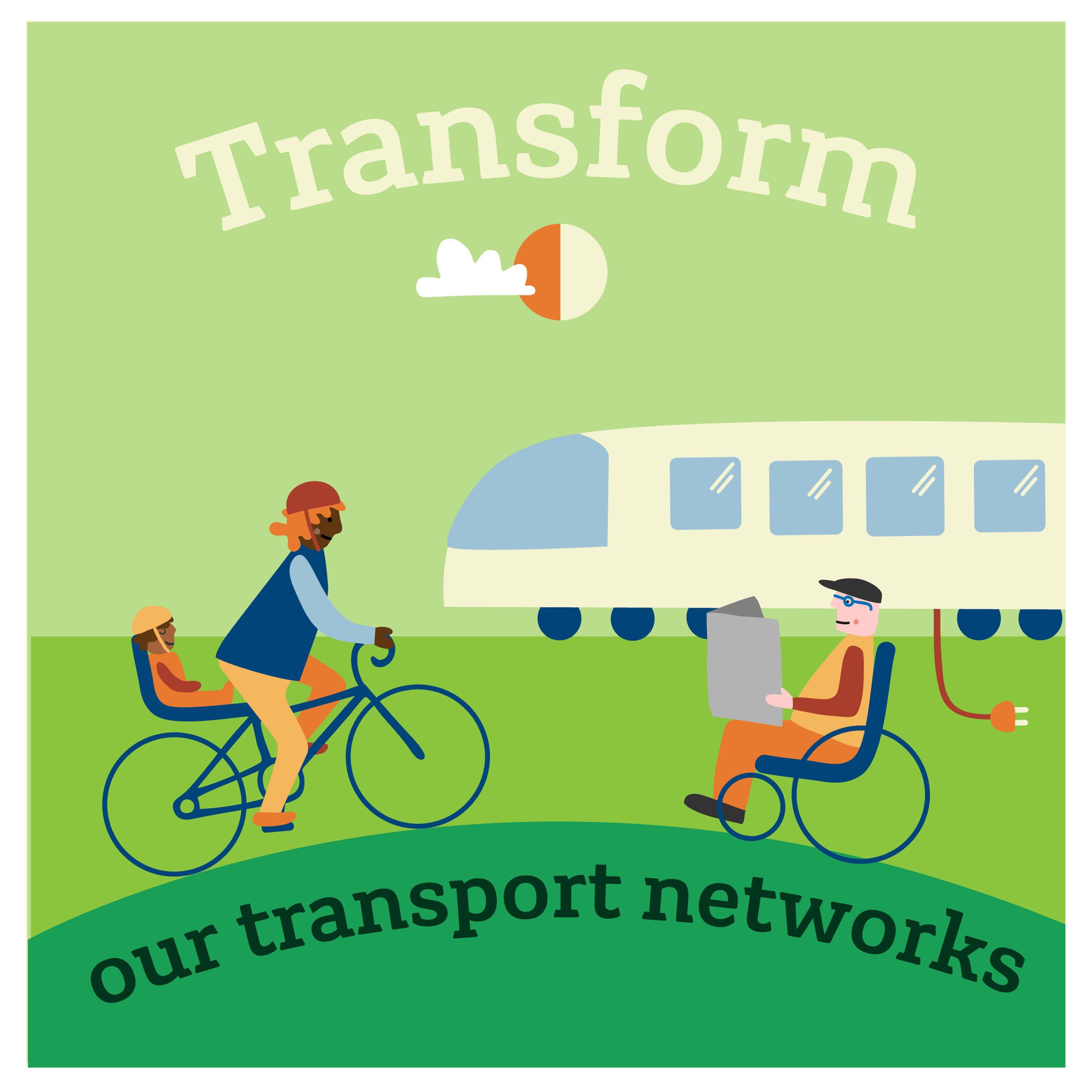
Transform our transport networks
Our vision is for cleaner, healthier towns and cities. We want a transport system that prioritises walking, cycling and affordable and accessible public transport. Investment should reflect this with money diverted away from expensive, high carbon infrastructure like motorways to public transport and active travel.
What the Climate Change Plan update includes:
- There is no commitment to stop building new trunk roads or motorways.
- A new target to reduce car kilometres by 20% by 2030 is very welcome, forward thinking and not being done in the rest of the UK. A roadmap of how Government plans to make this happen will be produced in 2021.
- Only 3% of the transport budget will be for active travel – well short of the 10% we called for.
- The new £50 million for ‘Active Freeways’ is a potentially welcome initiative. This is said to ‘involve identification and design development of the strategic active travel network, to provide segregated active travel routes on main travel corridors to city and town centres and major trip attractors linking communities throughout Scotland’.
- No specific mention/policy of achieving zero emission zones in each city
- No real action on aviation, we called for the introduction of a Frequent Flyer Levy
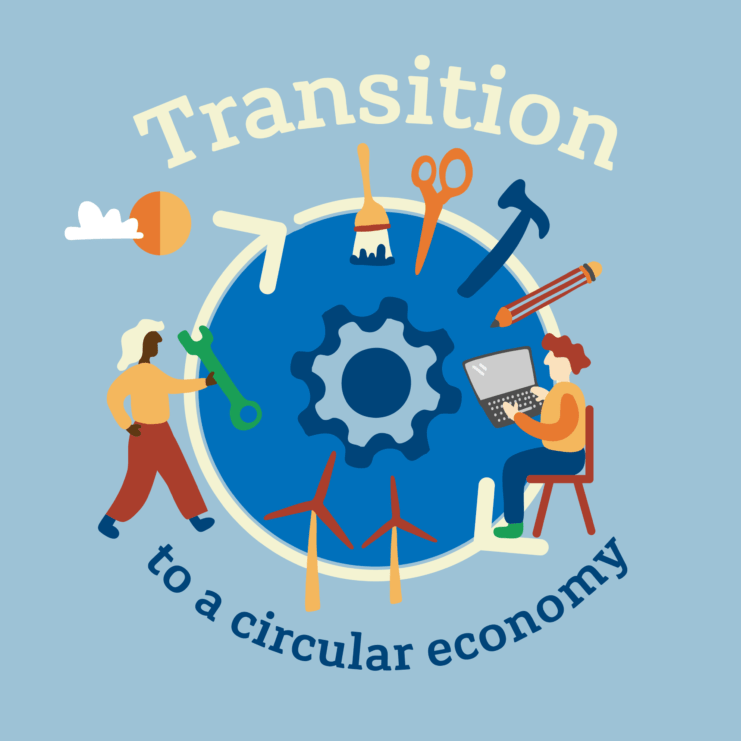
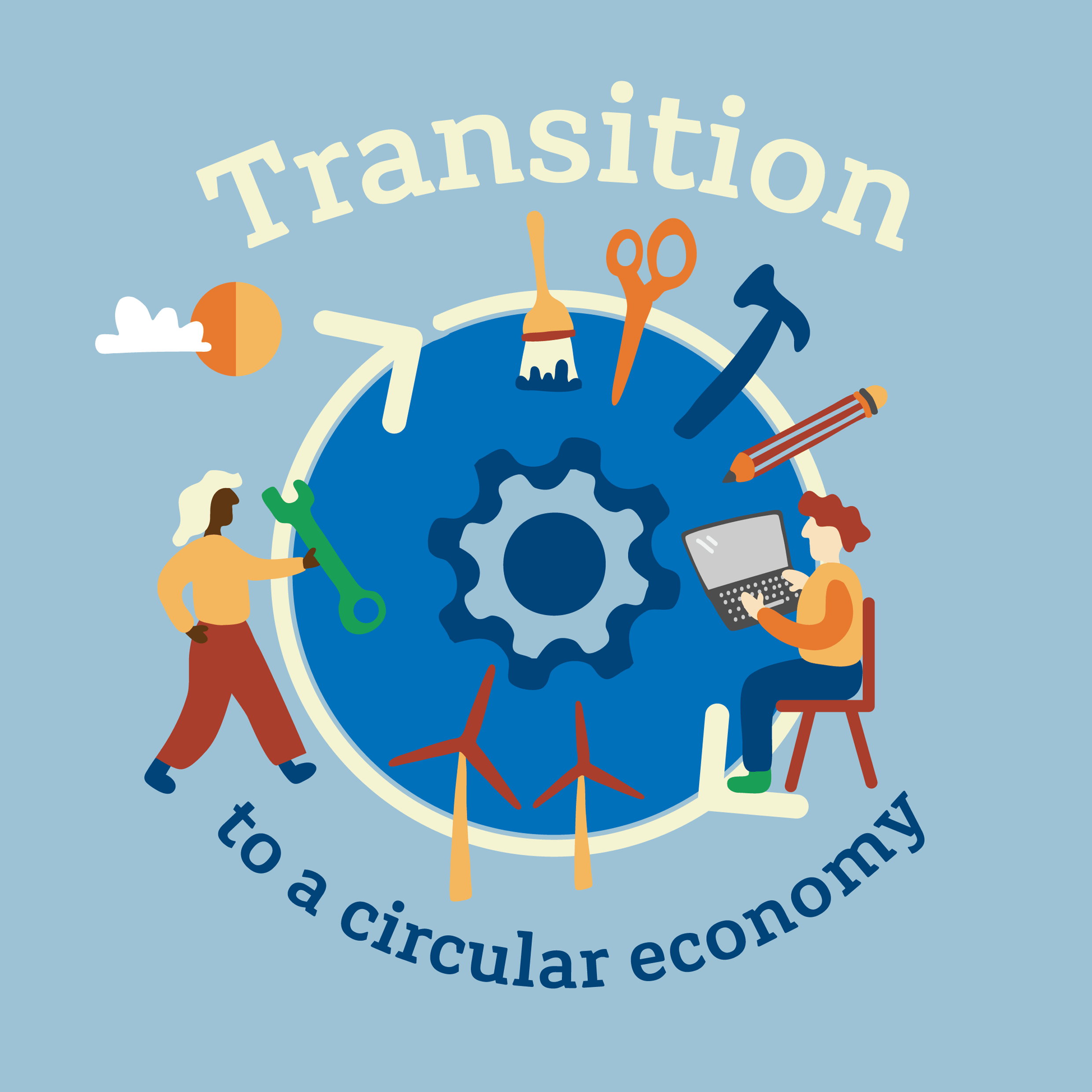
Transition to a circular economy
Our vision is for an end to unnecessary waste and pollution and investment in recycling. This can create jobs – research by RREUSE has shown that 10,000 tonnes of waste can create only 1 job in incineration, and 6 jobs in landfill, but 36 jobs in recycling and up to 296 jobs in repair and reuse.
What the Climate Change Plan update includes:
- Commitment to look at how to make incinerators less damaging, rather than banning new ones
- Investment to deliver recycling targets falls short of what is needed and compares poorly to investment in Wales
- No commitment to which single use plastics could be banned or promotion of alternatives
- No commitment to building a circular economy


Protect and enhance our seas
Our vision is that marine environments are recognised for their potential for carbon storage and properly protected. Many marine species – from phytoplankton to cold-water corals – capture and store ‘blue’ carbon. Carbon densities in marine sediments can be six times higher than in peatlands.
What the Climate Change Plan update includes:
- Commitment to further research on marine but no policy proposals to help protect and enhance seas as a crucial carbon store
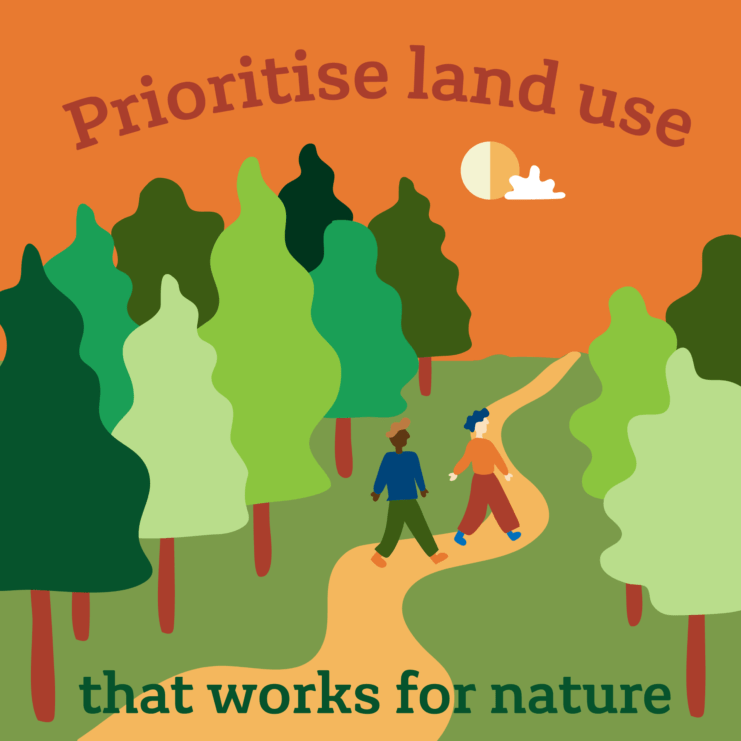
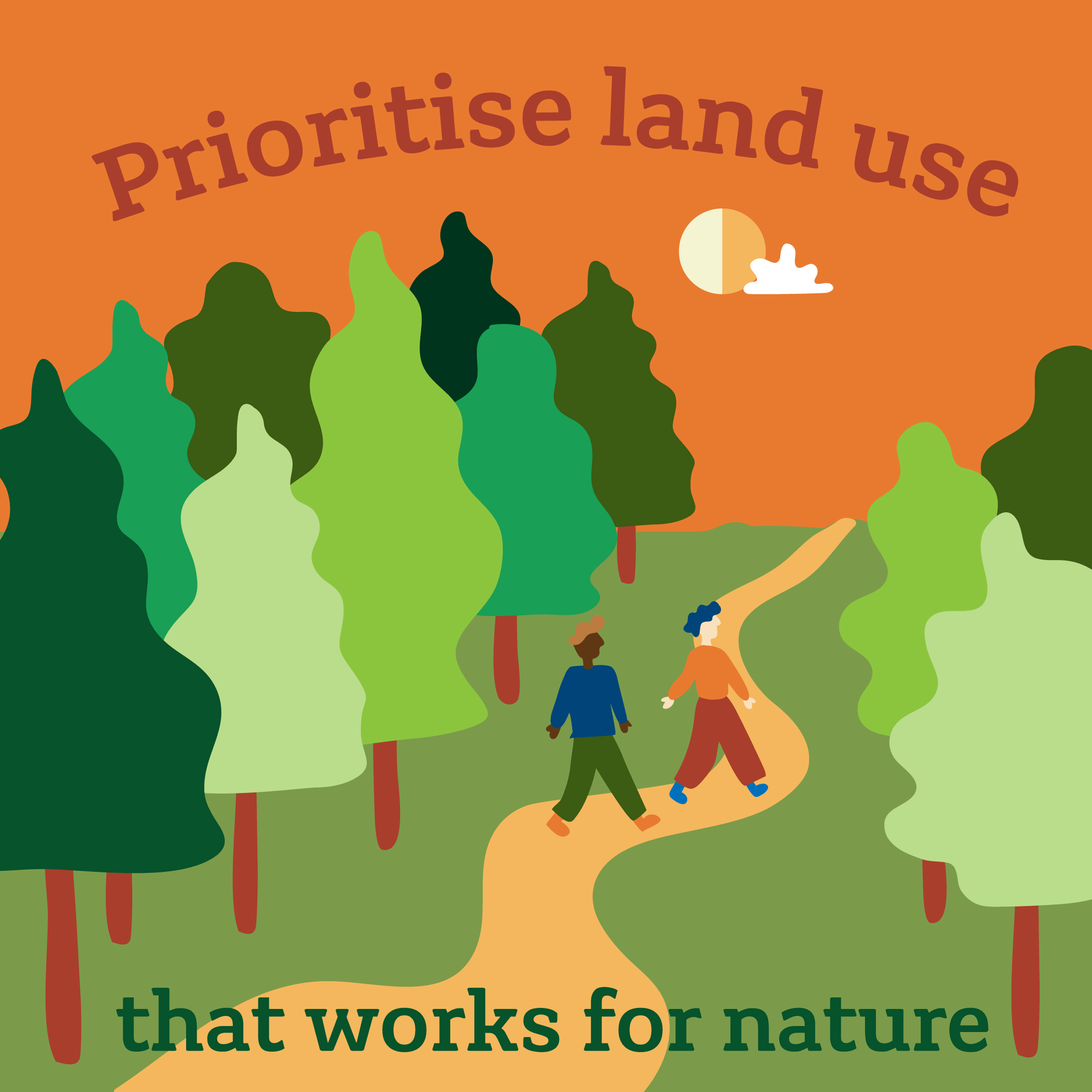
Prioritise land use that works for nature
Our vision is for all degraded peatlands to be restored, extensive native tree-planting projects and recognition of the value of protecting our seas as vital carbon stores
What the Climate Change Plan update includes:
- No new targets for woodland creation
- No commitment to end the burning of peatland or ban the use of peat in horticulture
- Issue of deer management not addressed, despite its carbon saving potential
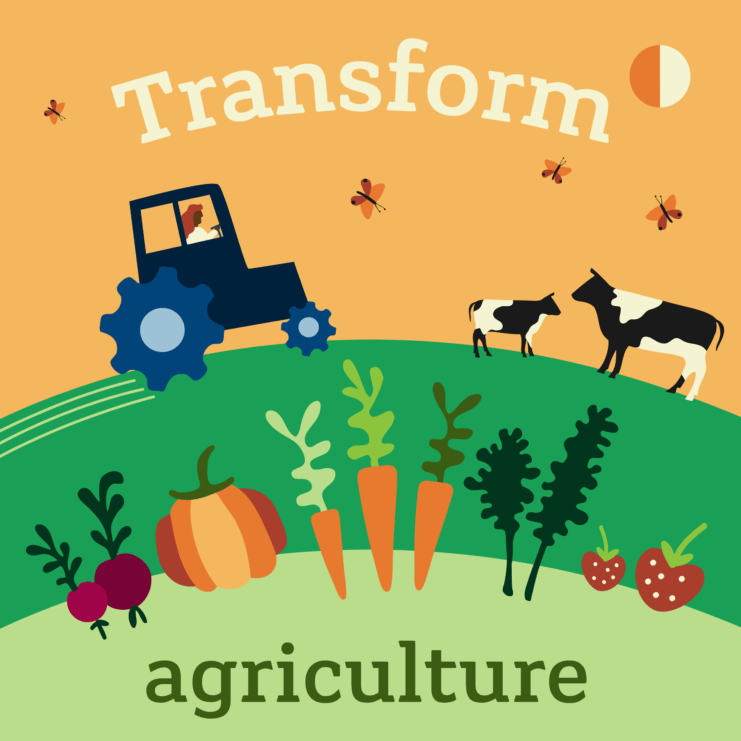
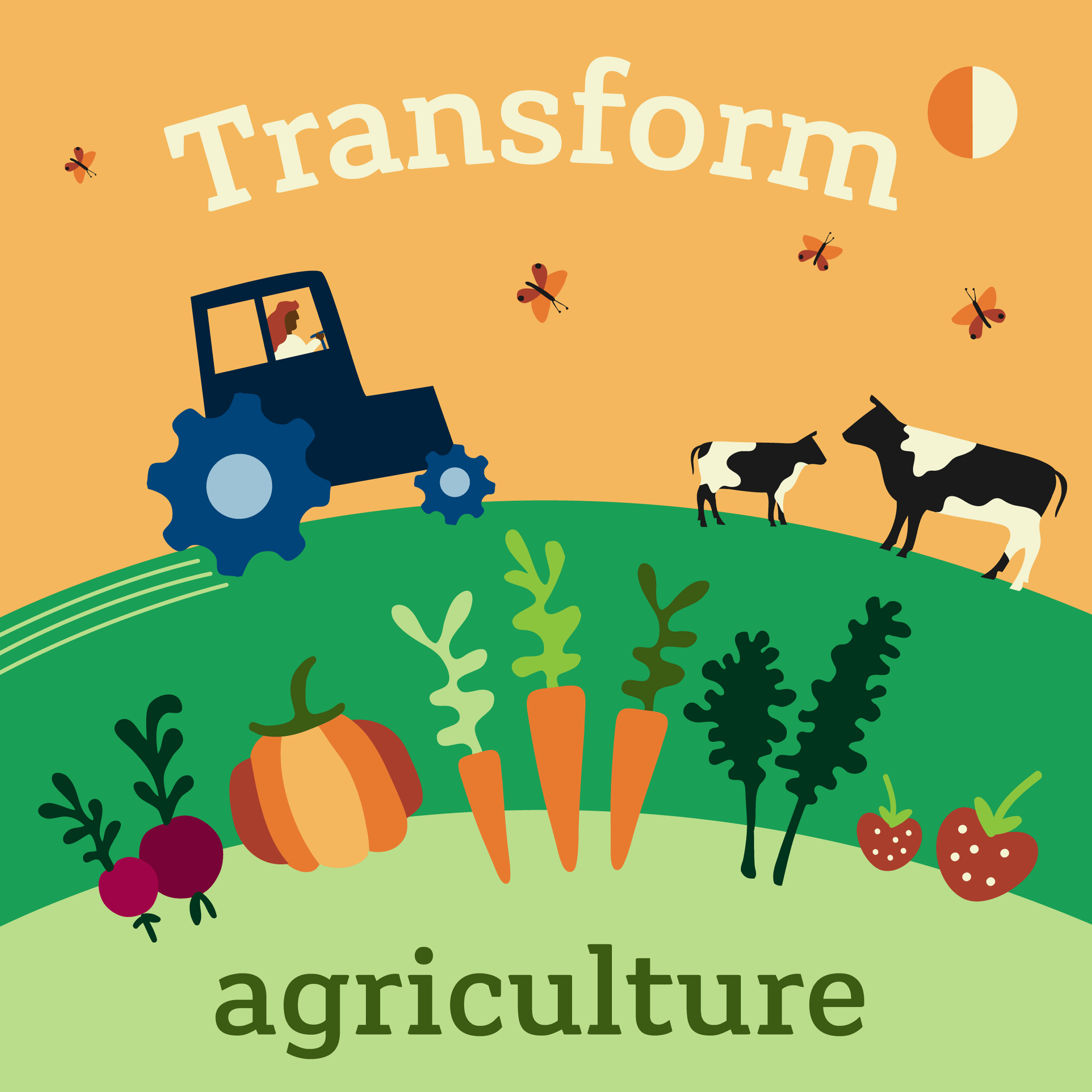
Transform agriculture
Our vision is for climate and nature to be at the heart of Scotland’s plans for rural support.
Agricultural emissions accounted for 18% of total emissions in 2018 and the wider food system contributed up to 30%. With three quarters of our land classified as agricultural, it is vital that agriculture plays a key and ambitious role in reducing its contribution to dangerous climate change.
What the Climate Change Plan update includes:
- Lack of ambition, with smaller fall in emissions projected compared with other sectors and few firm commitments to action
- New policy proposal to introduce environmental conditionality in the agriculture sector is potentially welcome but lacks detail, especially in relation to its climate impact


Embed and invest in climate justice
Our vision is that Scotland is a good global citizen and demonstrates world leadership by championing climate justice, and that people who have not been responsible for contributing to the climate emergency do not unjustly have to shoulder alone its worst effects.
What the Climate Change Plan update includes:
- Highlights Scotland’s role as European Co-chair of the Under2
Coalition (a coalition of 220+ devolved countries, cities and states) - Talks about ensuring the COP26 talks are as inclusive as they can be
- Updates the actions it is taking to share expertise but no mention of Climate Justice
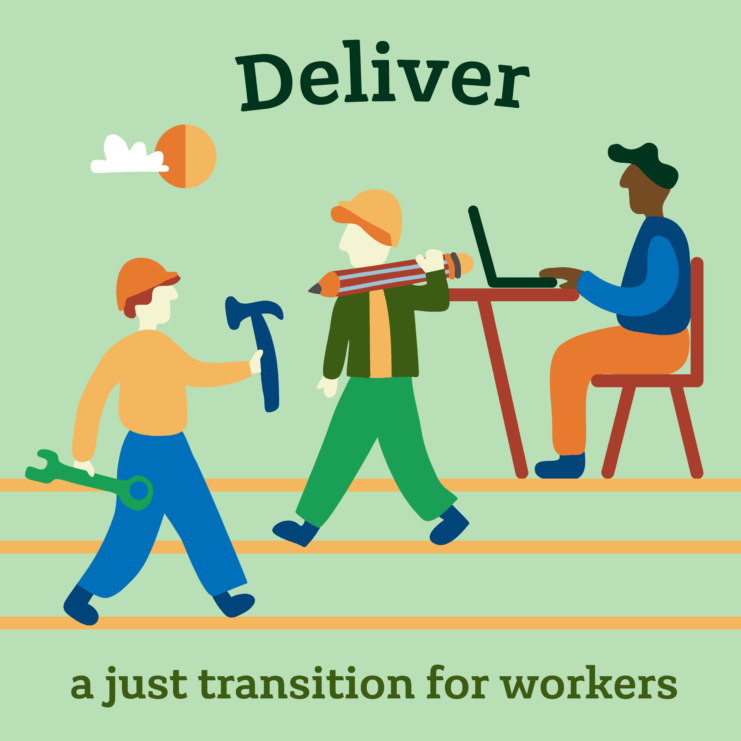
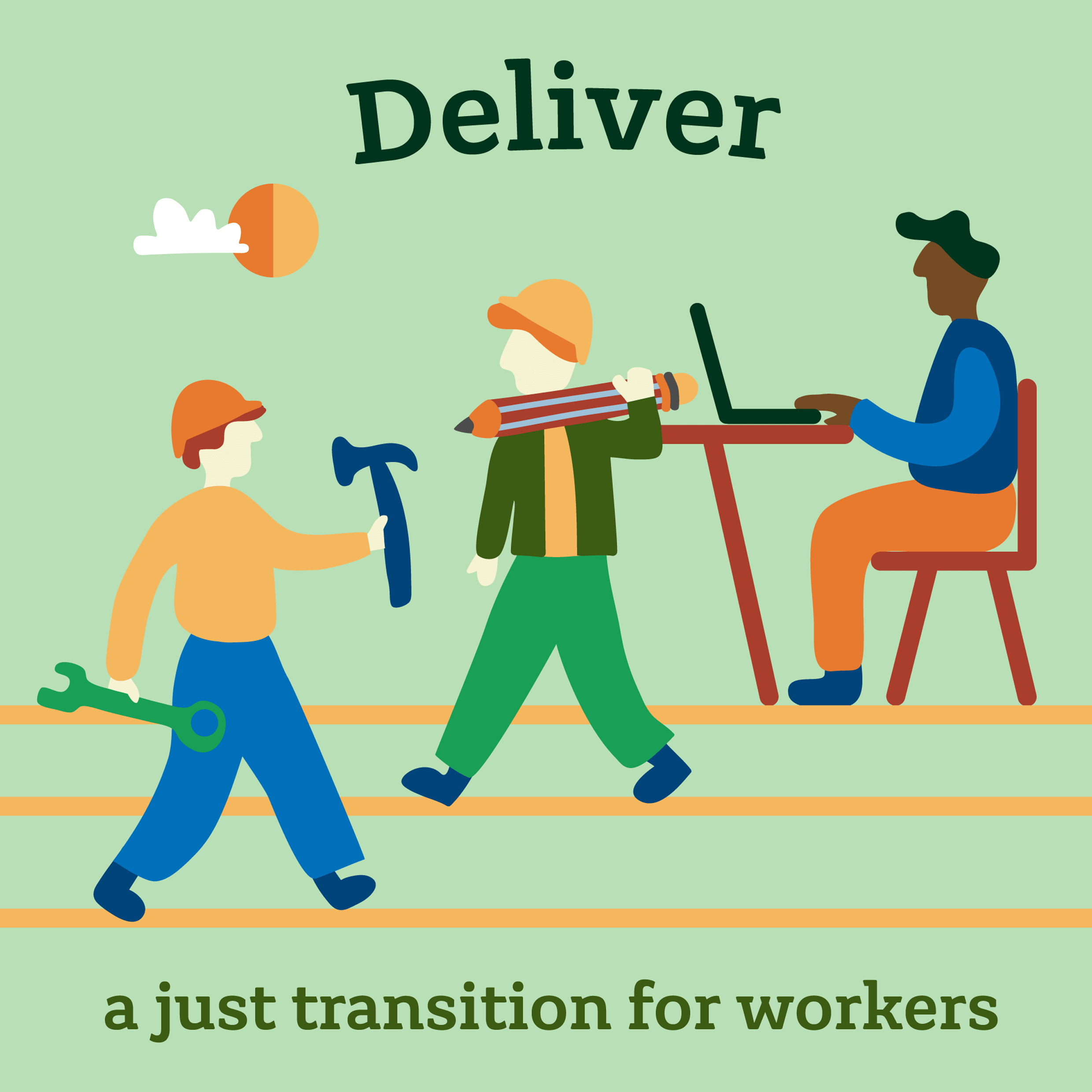
Deliver a just transition for workers
Our vision is that the Climate Change Plan will set out how we will phase out our most polluting activities as part of a Just Transition to a low carbon future in a way that is fair and just for everyone.
What we want the updated Climate Change Plan to include:
- Consult with impacted workers and communities, trade unions and environmentalists; and create a national Action Plan and rewritten Economic Strategy that:
- focusses on a just transition, wellbeing and a more circular economy that reduces waste and keeps products in use for longer.
- includes regional and sectoral plans with targets and timescales for reducing emissions, investment and job creation.
- Give the Just Transition Commission a statutory remit and a representative membership
- Use public procurement to promote a Just Transition.

